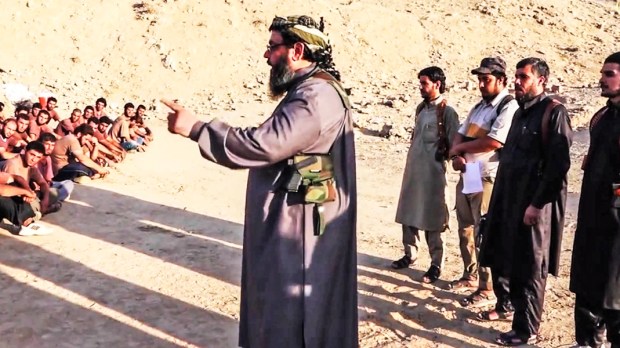Help Aleteia continue its mission by making a tax-deductible donation. In this way, Aleteia's future will be yours as well.
*Your donation is tax deductible!
Faced with the confusion of terminology that we have seen recently, brought to the fore once again by terrorist attacks in various locations in Europe, Jaume Flaquer, S.J., an Aleteia expert, explains some terms.
What is the spiritual caliphate?
It is an especially Sufic concept [in Islam], which refers to the fact that human beings are caliphs (representatives, or lieutenants) of God on earth.
In the case of Barcelona, do you think we are facing a failure of efforts to prevent radicalization?
We can call something a failure if there is a well-designed plan that doesn’t achieve its objectives because of some element that was not taken into account. But no “plan” has been seriously proposed in Spain that takes into account all the causes. There are only specific policies that help to palliate something that could be much worse.
Should we speak of violent extremism, instead of Jihadism?
I think we can legitimately speak of Jihadism, since it is a term that the terrorists themselves use, and because it appears in the title of the chapter on war of any Islamic code of law.
The expansion of Islamic dominion during its age of conquest was granted legitimacy by using the term Jihad.
Of course, terrorists do not respect the restrictions of those ancient wars of conquest (expressed in some manuals of ethics for cavalry). However, rather than simply erase the term Jihad today, Islam ought to analyze critically whether that period of conquest should also be condemned, as Christianity has done with the Crusades.
Read more:
12 Things to Know About “What ISIS Really Wants”
Fr. Flaquer, a Jesuit, is the coordinator of the area of Theology for the Cristianisme i Justícia institute in Barcelona. An expert in Islam, he is a professor at the Theology Department of the Ateneu Universitari Sant Pacià. He received his master’s degree in philosophy from the University of Barcelona, and his master’s degree in theology from the Sèvres Center in Paris. He holds a doctorate in Islamic Studies from the École Pratique des Hautes Études of the Sorbonne in Paris; his thesis was on the Sufi mystic Ibn’ Arabî. He also works at the Migra Studium Foundation, a social center promoted by the Society of Jesus in Catalonia.
He published two works with Cristianisme i Justícia: Fundamentalism (May 1997) and Itinerant Lives (December 2007).

